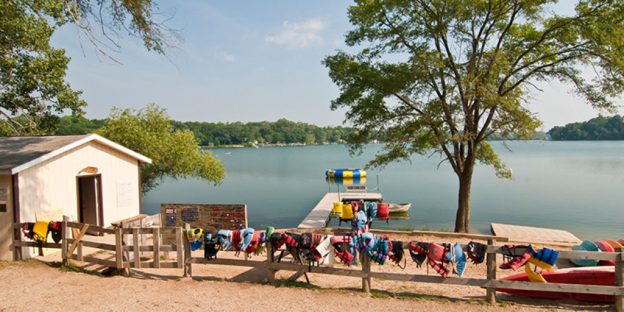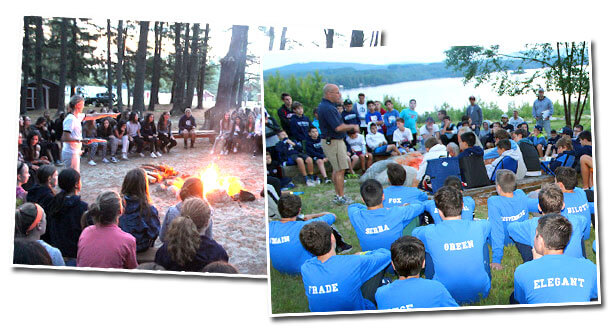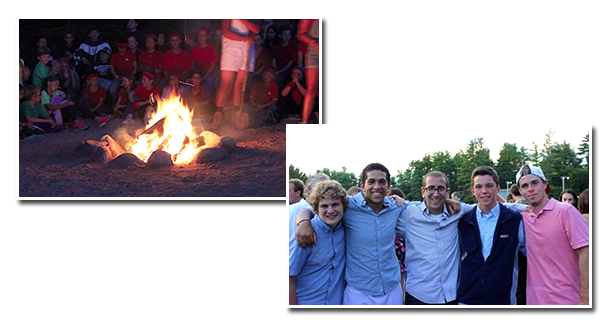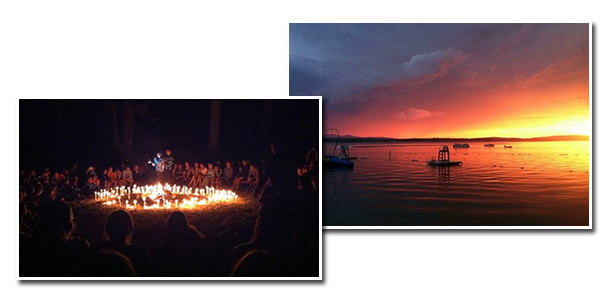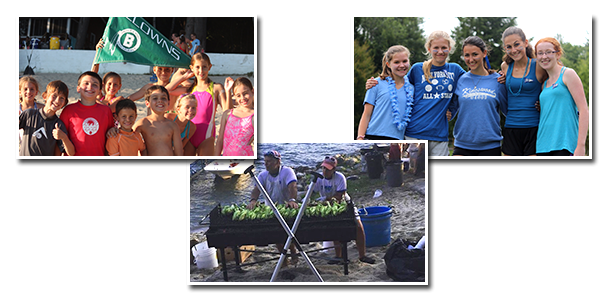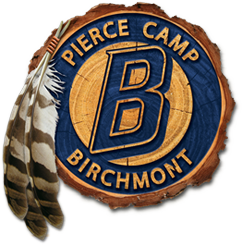This recent article from Camp Business illustrates how seriously we take waterfront safety here at Camp Birchmont. Our number one priority all summer long is to keep our campers safe and having fun.
Smooth Sailing At The Beach
Creating a safe waterfront for lifeguarding staff and campers
by Robert Attonito
It’s another spectacular New Hampshire afternoon at Camp Birchmont as I sit alongside Lake Wentworth, enjoying a moment of quiet. The lake is calm and crystal-clear, a young bald eagle floats high overhead, and a gentle breeze is the only thing to be heard. In the distance, the tranquility is broken by the sound of happy children rushing to their afternoon “free swim” period at what we simply refer to as “the beach.”
As waterfront director, my responsibility is to balance fun with safety, to allow just enough spirited play while maintaining a watchful eye in preventing incidents and accidents. At Birchmont and especially at the beach, creating a safe and secure environment for campers is still the top priority, while allowing them to learn new skills and have fun frolicking in what can be described as the perfect camp lake.
Start With Staff Members
To start the summer, the camp’s lifeguard orientation begins before all other staff orientations. Prior to arriving, all lifeguards receive emails that contain lifeguard manuals, a staff handbook, and other articles on camp and boat safety. All waterfront staff must study for and take the challenging New Hampshire Commercial Boat Licensing exam in accord with state requirements. From the time they are screened and eventually hired, all lifeguards are scrutinized for experience, certifications, and general knowledge as it pertains to both the camp experience and waterfront acumen. Creating a great espirit de corps among guards is essential in creating a high staff return rate among waterfront staff. During the extensive orientation, lifeguards are taught the skills they need to master before the children arrive two weeks later. Although most come with proper certifications, the entire waterfront staff benefits from a thorough review. The orientation time is spent on rescue skills, CPR/AED, and first aid. An emphasis on boating safety with the inherent dangers, as well as all waterfront policies and logistics, are covered to ensure an effective response to any incident. Our emergency-action plan is repeated often to ensure an immediate reaction. Skills are taught and reinforced throughout the summer and reviewed weekly by the waterfront directors, based on observations or incidents to guarantee there is no deterioration of skills and to combat complacency. Waterfront staff members are required to swim laps daily to build endurance and help fight fatigue. Once the members are ready and the kids arrive, we have a tradition of administering our own high-level swim test for each camper, prior to giving them full access to the lake.
Swim Tests
For us, morning instructional swim is not optional until campers have completed 7th grade, and/or have completed a vigorous deep-water swim test. Morning swim is comprised of three periods of American Red Cross swim instruction, which includes lessons for a wide range of ability levels, from novice swimmers to those pursuing a highly sought-after Lifeguard Training Certificate at age 15.
During the afternoon swim, campers are offered a wide array of choices, including a free swim, kayaking, sailing, skiing, paddle boarding, floating iceberg, and trampoline with a rope swing, and more! Having established a safe environment provides campers an envelope of security that promotes a love for the “beach.” Swim time remains as popular as ever, since the Pierce Family established the camp back in 1951. In fact, parents and campers looking for a traditional, big lake experience are drawn to Birchmont and beautiful Lake Wentworth! While we’d love to share all of the success stories of kids learning to ski, sail, wakeboard, swim, pass “LIT”, etc., this article’s focus is on some of the protocols and policies for safety we have adopted over the years.
What we do at the beach may not be for everyone, but we continually refine the program so it works well for today’s campers and adheres to our camp traditions. The hope is that readers might obtain an idea or reinforce one of their own practices so that all camps provide secure waterfronts.
Lake Wentworth is 13 miles in circumference, and at 3,097 acres, is the seventh-largest lake located entirely in New Hampshire. Campers need to be confident swimmers, even with the use of life preservers, which are required once outside the roped-in swim area. To that end, we adhere to a deep-water test that consists of a lap requirement (approximately a 200-yard continuous swim), which campers must pass in order to gain access to the lake at large for boating (sailing, canoeing, paddle boarding, kayaking), waterskiing, wake boarding, and/or tubing. Not only is the policy safer in the long run, but it becomes a clear esteem-booster as campers are always recognized for their efforts by staff and peers. Once children do pass, a myriad of activities are open to them, regardless of age. In fact, we encourage children to try every waterfront activity that is offered as an integral part of camp life.
Keep Staff On Their Toes
As director, my major focus is on constantly watching over my staff of 18+ members to ensure they maintain the safest possible waterfront protocols that include the “five-minute scan” developed at Penn State University and the RID factor, recognized by the American Red Cross. Additionally, we use the buddy system for all campers and staff, who also must pass a required staff swim test. In addition to myself as the director, the staff hierarchy at the waterfront includes my longtime assistant director, Polly Goldman (W.S.I.), followed by three team captains who are senior lifeguards, and who supervise a team of six other guards. Every afternoon (consisting of three activity periods), each team rotates between lifeguarding, sailing, and waterskiing, keeping individuals fresh, and yet working as a team that is familiar with one another. Instilling a true family atmosphere that includes the directors and the entire staff creates a vested interest in not letting each other down. We make sure staff members know that “bad things can and do happen to everyone,” regardless of the camp or program. In that regard, a healthy sense of fear help keep lifeguards on point for the entire summer.
One final distinction is that the beach is always closed to visitors, campers, staff members, and even owner/directors when lifeguards are not on duty.
Explore And Excel
We want all campers to have fun, and we encourage them to truly enjoy the beach and all of the waterfront activities, not only the ones within their comfort zone. Having a large, well-trained, and competent lifeguarding staff is essential to maintaining that safe environment for children to explore and excel!
Ultimately, all of these efforts and protocols lead to a safe and rewarding waterfront experience, and one that for 65 summers has left campers running back to the beach for more!
Robert Attonito is a retired N.Y. teacher, coach, wrestling official, and fireman from Deer Park, N.Y. He is an AMT, a WSI since 1964, and member of the National Wrestling Hall of Fame. “Bobby” has been at camp since 1954 as a young camper, and is now considered a Birchmont living legend.
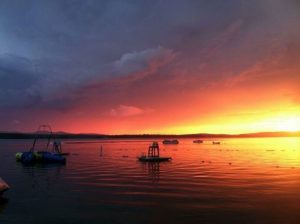
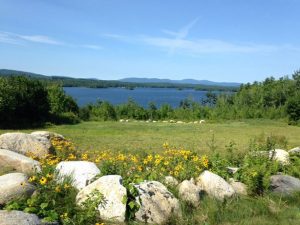
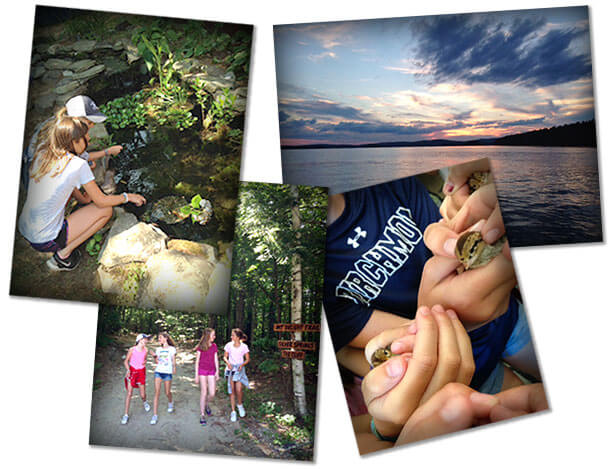
 Camp Birchmont
Camp Birchmont
